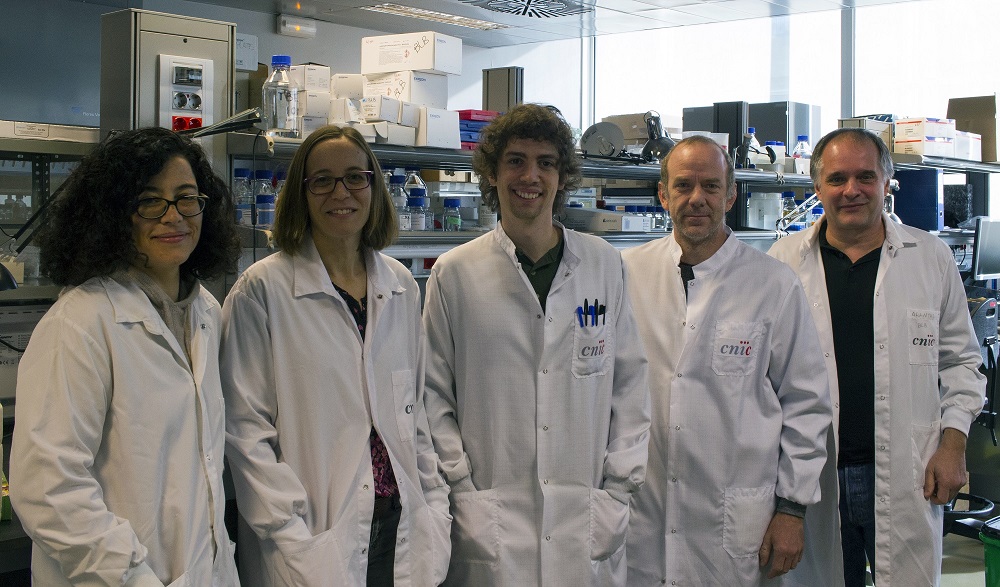Journal of Experimental Medicine: CNIC scientists produce an atlas of genes mutated by an immune-system protein and linked to lymphoma
The researchers have identified a collection of almost 300 genes mutated by AID, with some of the mutations found recurrently in human tumors and lymphomas
Researchers at the Centro Nacional de Investigaciones Cardiovasculares Carlos III (CNIC) have identified the largest collection to date of genes mutated by AID, a key protein in the immune response. The study reveals a new link between the mutagenic activity of AID and the generation of lymphomas. The information obtained, published in the Journal of Experimental Medicine, will increase understanding of the molecular mechanisms that control the activity of this enzyme and its possible contribution to the development of cancer.
The research team led by Almudena Ramiro have complied an atlas of the mutations that accumulate in the DNA of B lymphocytes during the immune response. This damage, explained Ángel Francisco Álvarez Prado, “is caused by the activity of the protein AID, an enzyme with a key role in the generation of immunity to various pathogens.” The function of AID is to edit the genes encoding immunoglobulins, molecules that detect and specifically mark foreign organisms for later elimination by the immune system. However, Álvarez Prado explained that “AID activity also collaterally alters other genes, affecting fundamental B cell functions and resulting in the development of cancer.”
The findings, published in the Journal of Experimental Medicine, will increase understanding of injury to these cells during the immune response and how these mutated genes contribute to the generation of lymphomas, a type of blood cancer
The research team developed a new method based on mass sequencing to detect AID-induced DNA mutations, a major goal in the field. Álvarez Prado explained that, thanks to this technology, the team were able to identify almost 300 genes mutated by AID. The collection includes “several genes that are recurrently mutated in human tumors and lymphomas.”
The study authors also emphasize that the discovery of this large collection of AID target genes “has permitted an exhaustive study of their molecular characteristics and the factors that define the specificity of action of AID.” The researchers have used these molecular characteristics to develop a machine-learning tool that can predict other likely targets of AID activity.
Cell repair
Using genetic mouse models, the CNIC scientists discovered that the main DNA repair pathways work in a coordinated fashion to repair most AID-induced mutations, thus protecting the B cell genome. However, as Álvarez Prado explained, a small proportion of these mutations “escape the control of this repair system, permitting the development of cancers and other diseases of B cell origin.” Some of these persistent mutations in the mouse models are identical to those found in human cancers.
The authors believe that their results constitute the largest collection to date of genes mutated by AID and that the characterization of these genes will increase understanding of the molecular mechanisms that control the activity of this enzyme and its contribution to cancer.











